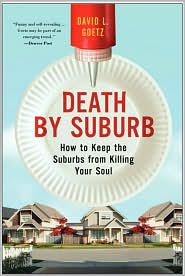My first class of the morning finished up just a few minutes before 9:00am. At my school we had a morning break until 9:25 or so (I can't remember anymore). Being the major geek that I am, I spent my breaks in the band room, which also happened to be the location of my next class. The orchestra class had just finished up with a substitute teacher - they had been watching a movie. As the movie popped out of the player, we watched some of the earliest images of the first of the World Trade Center towers engulfed in smoke. Literally, as we watched the coverage of the first crash, we watched on the screen as the second plane flew into the other tower (9:02am). Clearly, this was more than an accident, and even the band director sat down and starting watching with us.
As we got closer to class time, more students started coming in and watching TV. While everyone normally would have been practicing and goofing off, most people were talking it all in and talking about the news. The bell rang (9:25am...ish), and we were obviously having an unusual day. There was no move to begin rehearsing - by then all eyes were glued. Of course this whole time the giant red bar across the bottom of screen flashed and read, "Breaking News." And then...it got even stranger.
I distinctly remember sincere confusion when the news anchor said the program was being interrupted with more breaking news (9:37am). And I thought, "But this is already breaking news. Is this a joke? Is she just slow to catch on?" Images of the Pentagon flashed across the screen. It actually took me several minutes to realize that something else had happened, and very close to home. Immediately after the truth sank in and conversation erupted. People were on their cell phones frantically trying to call parents. Within minutes land lines and cellphone lines were jammed, and students were literally panicking about their parents who worked at the Pentagon. My friends were using the teacher's phone to try to reach their parents. Some were so overwhelmed that they spent the entire class period in his office. I remember that the school principle made an announcement over the intercom, saying the school secretary would deliver messages from parents, but that lines were too jammed to even attempt making a phone call out of the building.
There was a lot of stunned silence and crying that day. I actually didn't have any classes that day after my first period, even though we all went through the motions. I would learn later that the plane crashed into the Army "side" of the Pentagon (each side is devoted to a different branch of the military). It was under renovation, so thankfully fewer people were in the building than under normal circumstances. Because of this coincidental project, my dad, who should have been working in the Pentagon, was actually in a temporary office area on another side of town. Also, the new construction, which was influenced by the Oklahoma City bombings, enhanced the structure and safety of the building in the event of an attack and was almost complete. We were lucky that the attackers not only chose the emptiest area of the building, but that they chose the area likely to sustain the least damage.
Schools were closed the next day.
Even though it was a school day, I had the unusual perspective of being a 16-year-old who saw the events unfold live. I am fortunate to not know anyone personally who was injured or killed in the attacks. But I would also argue that all students, and especially the other teenagers in the DC area, were forever influenced by the events of the day.
They shaped a generation.
